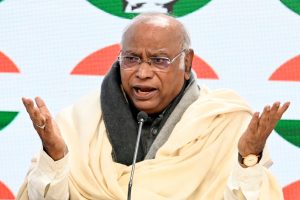As students receive their final admissions offer from the institutions of their choice, they would imagine that their trying journey is complete. However, even after months of effort, their process to go study abroad is not yet complete. The final barrier that lies between them and the education of their dreams — the student visa is yet to be dealt with.
A student visa permits a foreigner to enter a country for the purpose of receiving an education. It is an unfortunate truth that several promising Indian students in the past have received admission offers, but have been unable to study in a global university because their visa is denied. This is important, therefore, to take it seriously and approach the issue methodically.
Do your research and be prepared: The process of applying for and getting a student visa is a complex one. The reasoning behind it, however, is simple. The visa is a filter, acting as an instrument that countries can use to keep potentially dangerous or troublesome individuals out of their country.
Depending upon which country a candidate is applying to, the concerns can range from security to the possibility that the candidate is looking to illegally immigrate. Doing some comprehensive research into the country and its visa ruleswill help candidates better understand what is needed of them.
For example, applying for a Canadian study permit requires, in addition to an acceptance letter from an accredited institution and a valid passport. While each country will have different rules, these largely reflect the concerns of immigration officers for the more prominent study abroad destinations like the USA, Australia, and UK, in addition to Canada.
Understand what is required and plan ahead: There are three cardinal subjects that a candidate should research to be adequately prepared for the visa process. First is the documentary requirement. Each country has its own rules on which documents can be produced and for what purpose.
Secondly, candidates should check to see if there’s a visa interview for the country they are applying to. Finally, candidates should evolve an understanding of the timelines involved. How long would each separate step of the process and the final visa issuing take? At the earliest point possible, students should take the knowledge they have gained from their research and chart out a plan.
There is always a clear start day for the academic semester — using that as a point of reference, candidates can make a clear timeline of when they should apply for their visa. Being aware of the documentary requirements, they can also plan the time and order in which they should apply for and collect the required documents from their bank branches, teachers, etc.
Prepare for the worst: However, while doing this planning, it is important to remember that plans often go awry. Candidates should leave massive swathes of time in reserve, just in case there is some last-minute hassle.
There are times when a candidate planned ahead and moved early, and even though their visa was rejected the first time, they could re-apply and get it on the second attempt. Students should be prepared for every eventuality and err on giving themselves as much time as possible by allocating time and setting their deadlines strategically.
Things to be always keep in mind: Regardless of the specificities of visa processes for different countries, some basic precautions and guidelines tend to apply across the board. For instance, students should take care to ensure that all their documents are genuine.
However tempting it might be, any attempt to defraud a country’s embassy is likely to be found out and basically ensure that you will never be able to travel to that country, even as a tourist.
They should also undergo a medical examination to ensure that they are fit to travel, and get medical insurance for the duration of their studies, as it has become mandatory to do so.
The writer is chairman and MD, ESS Global- Study Abroad Consultant










